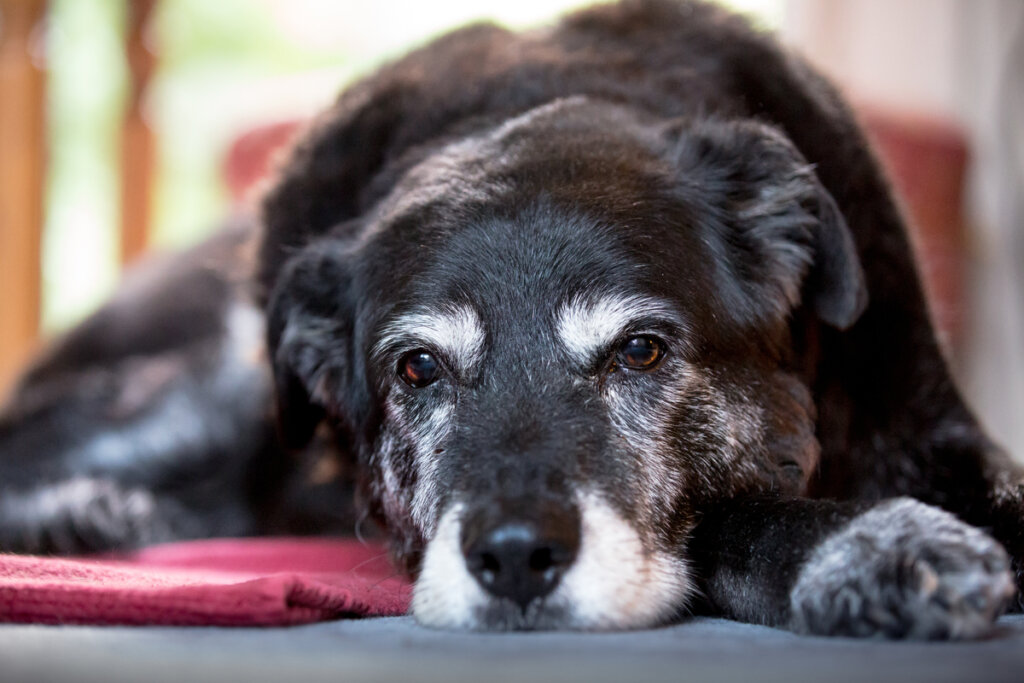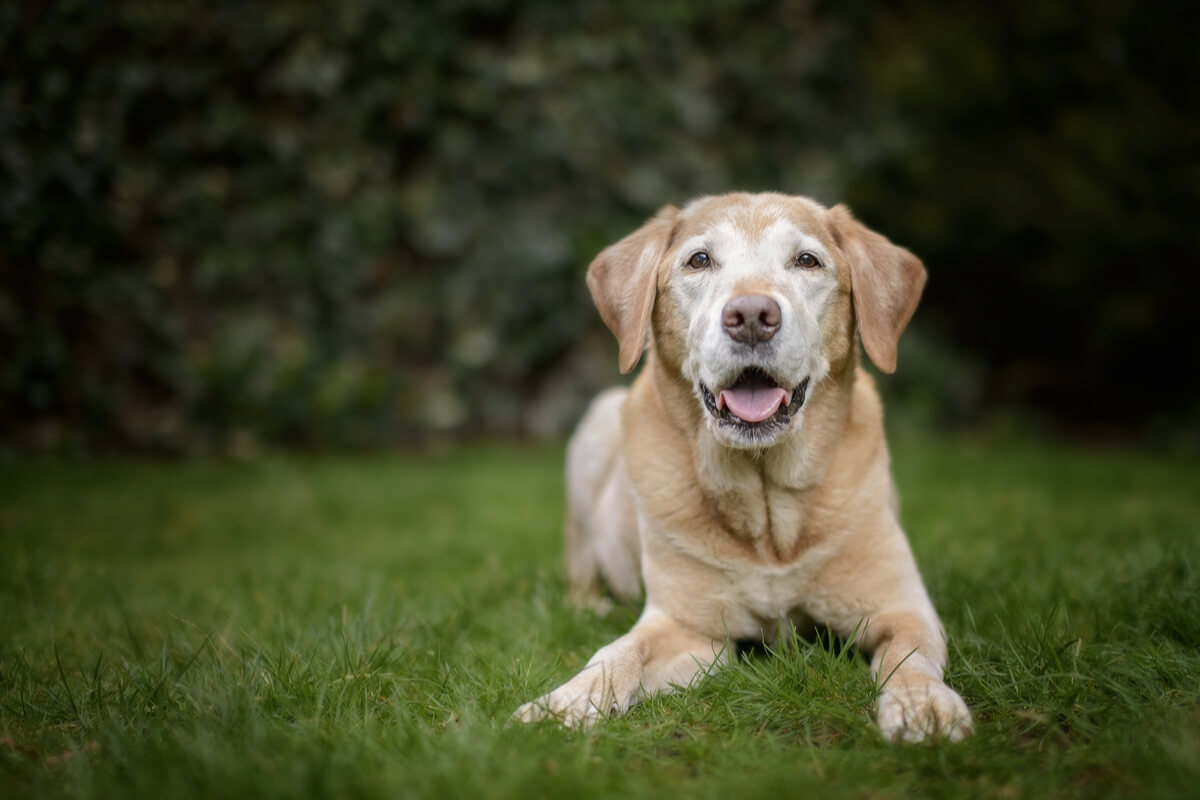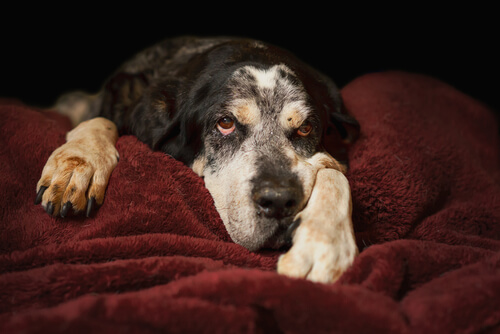3 Mistakes You Make Every Day with Your Elderly Dog

All dogs get older at some point and, as in any other animal, signs of old age start to appear. An elderly dog doesn’t behave in the same way, as its sensory and cognitive abilities, as well as its physical abilities, diminish.
However, even though these signs are clear, we tend to make mistakes when we look after them.
When is a dog considered elderly?
It’s difficult to establish a transition age for all canines. Larger dogs will have a shorter life span, even though they mature later. Because of this, they officially turn “elderly” around the age of 8.
In the case of small dogs, it could be as many as 10 years. Even so, these margins are only orientative, and what will give you reliable information will be the signs of aging.

Signs of aging in dogs
From around 8 years of age, and depending on the dog’s health history, the first signs of aging will begin to appear. Let’s take a look at the most common ones:
- Changes in sight, hearing, and smell: You’ll notice that it’ll become difficult for them to find things by sight, they won’t react when you call them from far away and they may go back to sniffing things they’ve already sniffed.
- Behavioral changes: The brain also changes with age. Elderly dogs may change their grooming routine, become disoriented or forget things more often.
- Sleep disturbances: Older dogs tend to sleep longer, but do so more intermittently.
- Lack of energy: As you’d assume, an elderly dog has less energy than a puppy. Although they shouldn’t stop being active, you’ll usually notice that their energy decreases.
- Health problems: A dog’s body deteriorates over time, leading to certain pathologies, such as locomotor or respiratory problems.
3 common mistakes when caring for an elderly dog
Sometimes we find it hard to accept that our dog is no longer a jumping, running youngster, and don’t realize the extra care they need. Even though it’s part of the natural course of aging, pain should always be addressed, at the very least.
Here are the 3 most common mistakes that are often made at this stage of life and how to prevent them. Keep reading, because all animals deserve care and welfare in their older years.
1. Neglecting their diet
Just because your dog has aged doesn’t mean that it will soon die. It’s very common to find people who allow them just what they want, giving them unsuitable food that will only trigger health problems that come from a bad diet, or aggravate them if they already have them.
Even so, making your elderly dog happy through food isn’t incompatible with maintaining a balanced diet. Don’t give in when they beg for food. Instead, give them some suitable food that they really like in their regular diet.
For example, you can alternate apple slices with dental snacks at snack time.
2. Not correcting their behavior
Changes in your dog’s behavior will occur with age, and some will be problematic. However, the dog’s training never ends. It’s a myth that an elderly dog is no longer capable of learning and correcting their behavior.
Of course, dealing with this new behavior should always be done in a positive way. Most new learning will be advantageous to provide all the necessary care at this stage of his life.
3. Get used to the lack of activity
An elderly dog still plays, socializes, and moves, albeit more slowly and with less intensity.
So, never stop stimulating them. Encourage them to move, spend time with them, let them smell new things, look for new interesting routes for walks, and so on. The secret to a quality old age is to take it slowly but surely.
Other special care for an elderly dog

Taking care of an elderly dog requires effort and dedication in many aspects, such as checking their ears and eyes more often, brushing them more frequently, or checking their teeth. Socialization also becomes important, as they’ll need you to spend more time with them, but without making them emotionally dependent.
In short, just as it was in your hands to raise your puppy to become a healthy and happy adult dog, it’s also your responsibility that their last years of life are full of love and free of suffering. This last stage is where the good memories are reaffirmed until the last days arrive.
All cited sources were thoroughly reviewed by our team to ensure their quality, reliability, currency, and validity. The bibliography of this article was considered reliable and of academic or scientific accuracy.
- Senior Pets and Health Issues. (s. f.). Best Friends Animal Society. Recuperado 21 de septiembre de 2022, de https://resources.bestfriends.org/article/senior-pets-and-health-issues
- Senior Dog Care: Caring for Older Dogs. (s. f.). Best Friends Animal Society. Recuperado 21 de septiembre de 2022, de https://resources.bestfriends.org/article/senior-dog-care-caring-older-dogs
